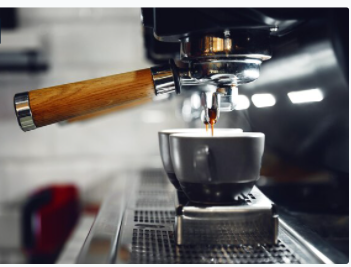With the expansion of coffee culture in working spaces, the scope for coffee shops and capsule systems for the working professionals and youth population is increasing, which, in turn, is increasing the demand for coffee machines worldwide. For instance, according to United Nations data of the world’s population, in 2019, about 1.2 billion youth aged 15–24 years globally, or 16% of the global population. The world’s youth population is expected to reach 1.4 billion people (13%) by 2065. In 1985, the proportion of youth in the overall population reached up to 19.3%. Increasing urbanization and the establishment of IT parks at a rapid pace in emerging economies of India are expected to boost the consumption of coffee beverages. Due to rising coffee use as a western beverage, some multinational coffee companies, such as Starbucks, are focusing on the strategic development of major brand chains. Thus, the increasing popularity of international cafe brands is expected to fuel demand for the automatic coffee machine. Additionally, convenience in workability of automatic coffee machines coupled with the consistent brewing has driven the middle-class population toward pod coffee machines. Moreover, rising in the male and female workforce is leading to a rise in demand for coffee machines in the corporate world. According to a Pew Research Center analysis of labor force statistics based on data from 114 countries from 2010 to 2016, women make up at least 40% of the workforce in more than 80 countries. In all these nations, the median female labor force participation rate is 45.4%. The coffee machines lessen the time and effort required in preparing a cup of coffee when used in coffeehouses and office cafeterias. Therefore, the increase in the working population is supporting the growth of the coffee machine market.
INCREASING DEMAND FROM THE CORPORATE WORLD AND YOUTH POPULATION INFLUENCE THE MARKET GLOBALLY
Asia Pacific held the largest revenue share of the global coffee machines market. The rising number of cafes and coffee shops, particularly in emerging countries, will drive the demand growth. Major cafe chains, such as Costa Coffee and Starbucks, are investing in the region owing to high growth potential, which is likely to support market growth. Moreover, manufacturers are investing in R&D to introduce advanced machines featuring the latest technologies. For instance, in 2018, Nestlé Nespresso S.A. invested USD 43.03 million in the creation of new production lines of its coffee system, Vertuo. In 2018, Dualit Ltd. introduced a new CaféPro Capsule Machine.
The companies in this market have been continuously focusing on strategies such as product developments, plant expansions, and mergers and acquisitions to expand their footprint worldwide and fulfil the growing demand of the market.
Some of the major key players operating in the global coffee machines industry includes Keurig Green Mountain, Inc. Robert Bosch Gmbh; Electrolux Ab.; Illycaffè S.P.A.; Koninklijke Philips N.V; Krups Gmbh; Morphy Richards; Nestlé S.A.; Panasonic Corporation; and Luigi Lavazza S.P.A. The major players in the coffee machines industry are focusing on strategies such as mergers and acquisitions and research and development to increase the geographical presence and consumer base globally.



